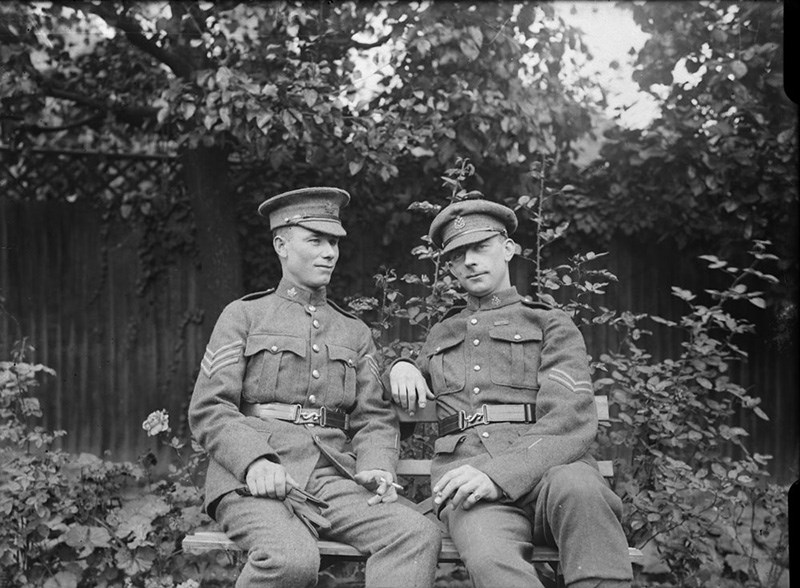He may have lost his memorial hall, but Port Moody WWI hero John Chipman “Chip” Kerr will soon be commemorated with a new stone marker in front of the McLean Residence at 2224 Clarke St.
At Tuesday’s meeting, city council approved a proposal by its heritage committee that a stone marker commemorating Kerr’s life and heroics be erected in front of the protected heritage home where he lived from 1947 until he passed away in 1963. The marker would be unveiled as part of the city’s celebrations of Heritage Week, Feb. 18 to 25, next year.
Kerr was a former lumberjack and homesteader who was awarded the Victoria Cross for his role in the surrender and capture of 62 enemy soldiers during the Battle of the Somme on Sept. 16, 1916. He was a private in a bombing attack at Courcelette, France when his 49th Battalion started running short of bombs. He loaded up his bayonet and ran along the fortified berm at the back of his unit’s trenches until he was able to fire upon the enemy and inflict heavy losses.
Thinking they were surrounded because of the barrage, the surviving enemy soldiers then surrendered, allowing Kerr’s battalion to seize 250 yards of their trenches.
During the assault Kerr lost his fingers but he didn’t stop to tend to his wounds until the prisoners had been taken.
After the war, Kerr returned to the homestead he was farming in Alberta, worked in the oil patch and as a forest ranger, before he moved to Port Moody.
A mountain in the Victoria Cross ranges in Jasper National Park is named after him, and in 2006 Chip Kerr Park in Port Moody was dedicated in his honour. Port Moody Legion Branch 119 also named its meeting hall after Kerr. But with the property on Clarke Street it once owned slated for redevelopment, the hall was closed on Jan. 1, 2015.
Port Moody currently has 11 stone markers throughout the city, commemorating deceased residents who’d made a significant contribution to the civic, cultural or social history of the city, or historically significant events or places like the train accident that occured in 1913 at Pigeon Cove.



